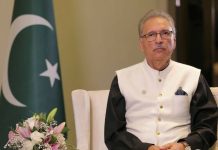Around 2,000 Pakistan’s have applied for asylum in the UK since 2016, who claim to be part of the lesbian, gay, bisexual or transgender (LGBT) community.
This record number of Pakistanis claiming to be part of group makes Pakistani citizens the highest numbers of claimants from any country during 2016-19, according to data released by the UK Home Office (HO).
Bangladesh is second with around 800 and Nigeria with around 400 claims made on the basis of their sexual orientation. Most of these claims are made by the applicants who claim they are in a same-sex relationship and would face prosecution should they return to their home country. Consequently, they seek protection and for leave to remain in the UK.
According to the HO guidance, in Pakistan, “carnal intercourse is against the order of nature” and is punishable with life in prison, while Amnesty International reports that “transgender people have continued to suffer harassment and violent attacks” in the country.
However, HO data states that around 1,200 Pakistanis of these applicants have been refused by the UK visa officials. Community leaders have said that most of these claims are false, just to prolong their stay in the UK. They said that since it’s hard for people to get asylum in the UK, some people are just using this as an excuse. However, they said when the UK HO asks them to provide any evidence about their claim, they fail to give any. This is the reason that a majority of their claims were refused by the visa officials.
The HO country guidance about Pakistan accepted that the general population and the family does not see homosexuality in a positive light but is generally tolerant enough to accept the situation as long as they are not affected. The guidance also acknowledged that assaults on gay men and lesbians are said to be rare in Pakistan.
In September 2014, Pakistan was one of 14 nations to vote against a UN resolution opposing LGBT discrimination.
Last month, a gay asylum seeker who appealed the decision of the UK Home Office to refuse his claim was told by an immigration judge that he was not “effeminate” to be gay. A Home Office spokesperson said, “Individuals are only returned to their country of origin when the Home Office and courts deem it is safe to do so.” He further said that each case is considered on its individual merits against relevant case law and published country information, and all decisions on claims based on sexual orientation “are reviewed by an experienced staff”.












